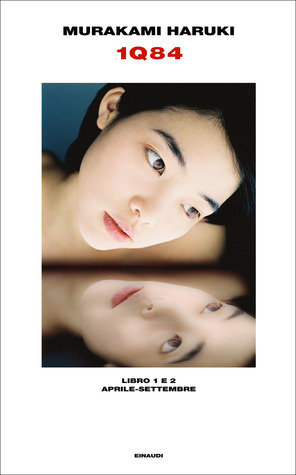What do you think?
Rate this book


700 pages, Kindle Edition
First published May 29, 2009
“Things like this don't happen all that often in one lifetime. This is the magnificent world of a picaresque novel. Just brace yourself and enjoy the smell of evil. We're shooting the rapids. And when we go over the falls, let's do it together in grand style!”
"I am nothing. I’m like someone who’s been thrown into the ocean at night, floating all alone. I reach out, but no one is there. I call out, but no one answers. I have no connection to anything.”
“Wasn't it better if they kept this desire to see each other hidden within them, and never actually got together? That way, there would always be hope in their hearts. That hope would be a small, yet vital flame that warmed them to their core-- a tiny flame to cup one's hands around and protect from the wind, a flame that the violent winds of reality might easily extinguish.”